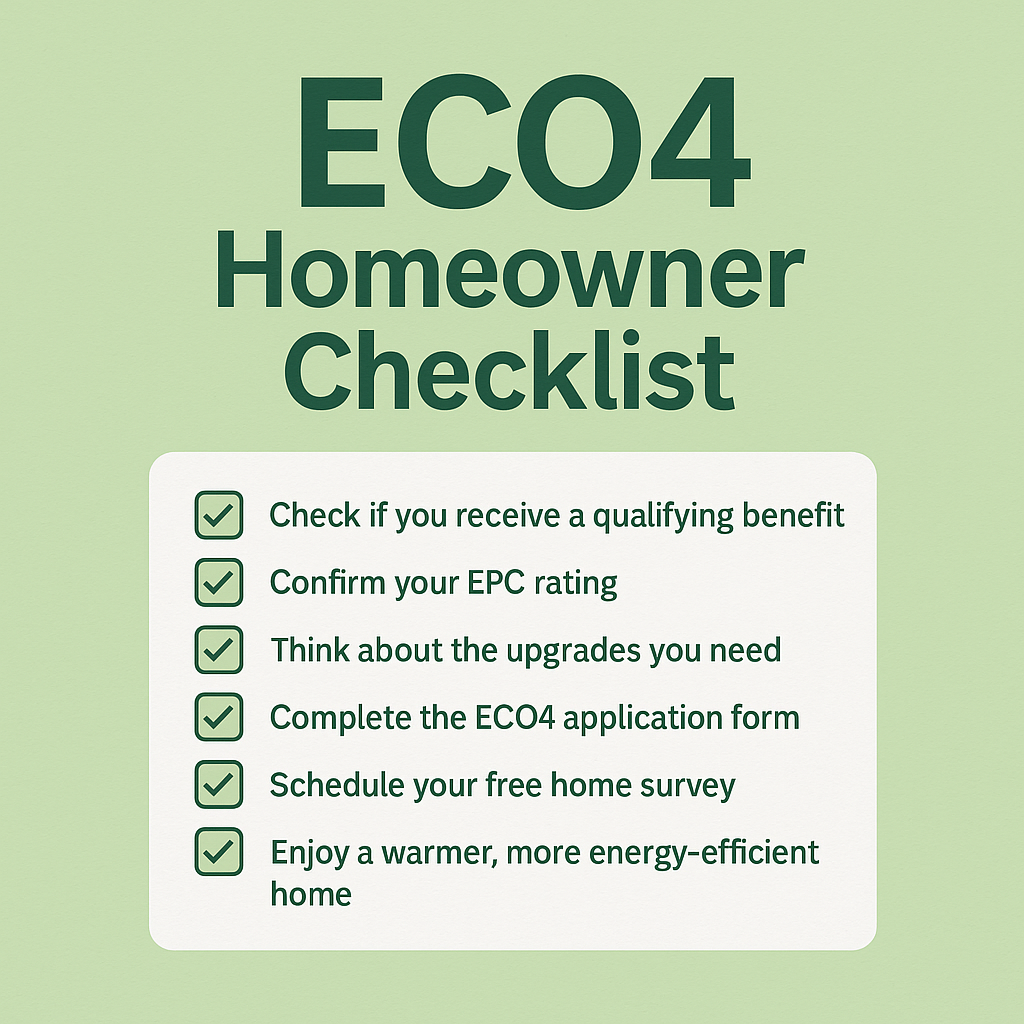As businesses increasingly seek to reduce their carbon footprint and energy costs, solar panel installations have become an attractive solution. The UK government offers several grants and financial incentives to help businesses adopt solar energy. These solar panel grants for businesses not only make the initial investment more affordable but also provide long-term savings and environmental benefits.

For businesses, securing funding for solar panels can significantly lower operational costs while contributing to sustainability goals. From VAT exemptions to specific grants, there are various schemes available that support the installation of renewable energy systems. Understanding how to navigate these options can be the key to transforming your business into a green enterprise.
By leveraging available grants, businesses can invest in solar power without facing prohibitive costs. We will explore the eligibility criteria, benefits, and application processes for these grants, ensuring your business can take full advantage of the available support.
Key Takeaways
- Businesses can benefit from various UK government schemes supporting solar panel installation.
- Solar panel grants reduce the initial costs and provide long-term savings.
- Understanding eligibility and application processes is crucial for accessing these incentives.
Understanding Solar Panel Grants
In this section, we will explore the specifics of solar panel grants, including their purpose and the different types available. This will help businesses understand the financial assistance options for renewable energy systems.
What Are Solar Panel Grants?
Solar panel grants are financial incentives provided by the government to encourage the adoption of renewable energy systems. These grants help offset the high initial costs associated with installing solar panels, making it more accessible for businesses.
Financial assistance can come in the form of direct subsidies, low-interest loans, or tax breaks. Importantly, these grants are part of the government’s broader efforts to achieve net zero emissions by 2050. By implementing solar panels, businesses can reduce their energy costs and contribute to environmental sustainability.
Types of Solar Panel Grants
There are different types of solar panel grants available for businesses. National grants such as the UK Shared Prosperity Fund provide significant funding and support local investments in renewable energy projects.
Additionally, the government has introduced a VAT-free period for solar panel installations, which eliminates the usual 5% VAT, reducing overall costs. Various local level grants also exist, supporting region-specific renewable energy initiatives. Through these diverse options, businesses can find suitable financial assistance to support their transition to cleaner energy.
By understanding what solar panel grants are and the types available, businesses can take informed steps towards integrating renewable energy systems into their operations. This not only helps in reducing energy costs but also aligns with governmental sustainability goals.
Eligibility Criteria for Solar Grants
Understanding the eligibility criteria for solar panel grants can help businesses maximise their chances of securing funding. Businesses need to meet specific qualifications and adhere to energy efficiency standards to qualify.
Business Qualifications
To qualify for solar grants, businesses often need to demonstrate their commitment to sustainability. This could include having a clear plan for reducing carbon emissions. Many grants require companies to have an ongoing operational history, typically a minimum of one to three years, to ensure financial stability.
Size matters: Small and medium-sized enterprises (SMEs) might have different requirements compared to larger corporations. Additionally, some grants are specific to certain industries, such as manufacturing or agriculture, to target areas with high energy consumption.
Documentation: Businesses usually need to provide financial statements, proof of ownership or a lease agreement for their premises, and other relevant documents. Ensuring compliance with local and national regulations is also crucial. For instance, businesses might be required to have an Energy Performance Certificate (EPC) of a certain rating to demonstrate energy efficiency.
Geographical limitations can also apply, with some grants only available to businesses operating in certain regions or local authorities within the UK.
Energy Efficiency Requirements
Energy efficiency is a critical criterion for many solar grants. Businesses often need to show that their properties meet specific energy efficiency standards. One common requirement is having a valid Energy Performance Certificate (EPC) with a minimum rating, often band C or higher.
Microgeneration Certification Scheme (MCS): Installing solar panels through MCS-certified installers is typically required. MCS ensures high-quality installations and compliance with industry standards.
Energy audits: Some grants may require businesses to undergo a professional energy audit. This audit assesses current energy usage and identifies potential improvements, demonstrating the company’s commitment to enhancing energy efficiency.
Businesses might also be expected to implement other energy-saving measures, such as upgrading insulation or switching to energy-efficient lighting. These upgrades not only help in securing the grant but also reduce overall energy consumption and costs.
Continuous monitoring and reporting of energy performance can be necessary to maintain grant eligibility and ensure long-term benefits.
Benefits of Solar Panel Installation
Installing solar panels offers significant advantages for businesses, ranging from environmental benefits to financial savings. By harnessing renewable energy, we can reduce our carbon footprint and see tangible reductions in energy bills over time.
Reduction in Carbon Emissions
Solar panels produce electricity without emitting carbon dioxide or other greenhouse gases. This reduction in carbon emissions helps combat climate change. Businesses opting for solar energy contribute to a cleaner environment, positioning themselves as environmentally responsible.
Additionally, using renewable energy sources reduces dependency on fossil fuels. This aligns with the global push towards green energy and net-zero goals. Our initiative in adopting solar solutions supports broader environmental goals and enhances our corporate social responsibility.
Long-Term Cost Savings
Initial installation costs for solar panels may seem high, but the long-term cost savings are substantial. Businesses can take advantage of various grants and incentives to offset these upfront costs. For example, the UK government offers a VAT-free period for solar panel installations, reducing financial barriers.
Once installed, solar panels can significantly lower energy bills. The electricity generated can be used on-site, reducing reliance on external suppliers. Furthermore, excess energy can often be sold back to the grid, creating an additional revenue stream. Over time, these savings make solar panels a financially wise investment for businesses.
Application Process for Grants
Navigating the application process for solar panel grants can streamline your efforts and potentially secure funding. Below, we break down the essential steps and documentation required.
Steps to Apply
The first step is to identify the relevant grant programmes, which can be done through resources like GOV.UK. Once identified, we need to review the eligibility criteria. This ensures that our business qualifies for the grant.
We should then prepare a detailed project proposal. This proposal often includes technical specifications, cost estimates, and sustainability impact. Local councils or energy suppliers may provide additional support or information.
Submission follows, typically via an online portal. Timeliness is crucial, as some grants have specific deadlines. Monitoring our application status regularly can help address any additional requirements quickly.
Required Documentation
Commonly, we need to gather a variety of documents. These include financial statements, proof of business registration, and a detailed project plan.
For grants via local councils or energy suppliers, additional documents like environmental impact assessments or feasibility studies may be necessary. Licensees might need specific permits or licenses.
Finally, detailed technical specifications of the proposed solar installation can be crucial. This may encompass system design plans and energy efficiency projections, ensuring compliance with grant stipulations.
Regional Support in the UK
Different regions of the UK offer specialised grants and incentives to help businesses adopt solar panel technology. These programs often vary in terms of eligibility, funding amounts, and application processes. By strategically leveraging these resources, UK businesses can move towards sustainability and contribute to the net zero goal.
Grants in Scotland
In Scotland, several funding options are available through the Energy Saving Trust and local authorities. The Energy Saving Trust administers multiple grants, focusing on renewable energy and energy efficiency improvements. One notable support mechanism is the Home Energy Scotland Loan, applicable for small-scale installations such as solar panels.
The Scottish Government also participates in the UK Shared Prosperity Fund which aims to reduce carbon emissions and promote green technology across various sectors. Local councils may provide additional support, so businesses should check with their specific locality for potential grants and incentives.
Funding in Wales
Wales offers several financial programs aimed at promoting the use of solar panels among businesses. One primary scheme is the Smart Export Guarantee (SEG) which rewards businesses for exporting unused solar energy back to the grid. While these tariffs are administered by Ofgem, local schemes supervised by Welsh authorities may enhance the benefits.
Another useful resource is the Development Bank of Wales which provides loans specifically for renewable energy projects. Businesses can access these funds to either offset initial installation costs or as part of larger sustainability projects. Additionally, the Welsh Government supports the UK’s net zero pledge and frequently updates its funding initiatives to align with this commitment.
Incentives in Northern Ireland
Northern Ireland offers specific schemes to encourage solar panel adoption among businesses. The Renewables Obligation (RO) remains a vital source of financial incentives, where businesses can receive Renewable Obligation Certificates (ROCs) for generating electricity through solar panels. These certificates can be sold or traded, providing a financial return.
Moreover, Northern Ireland’s local councils also offer various grants, though these may vary by district. The region’s unique energy landscape means that tailored advice is often provided by local Renewable Energy Specialists. These professionals help businesses navigate the complex regulatory environment and identify suitable funding options. Additionally, initiatives related to the net zero goal are gaining traction, potentially leading to increased funding opportunities in the future.
By understanding and accessing regional support, businesses can significantly reduce the costs associated with solar panel installations while contributing to broader sustainability objectives across the UK.
Building Energy Sustainability
Building energy sustainability requires a focus on integrating renewable energy alternatives and improving energy efficiency to reduce overall energy usage and environmental impact.
Renewable Energy Alternatives
Incorporating renewable energy sources like wind turbines and hydroelectric power can significantly enhance our building’s sustainability. Wind turbines, for instance, can generate a continuous supply of electricity, especially in regions with high wind activity. Although solar panels are popular, exploring alternatives to solar panels such as hydroelectric power can be beneficial.
Hydroelectric power, relying on water flow, offers a dependable and eco-friendly energy source. Additionally, biomass and geothermal energy can play a role in diversifying our energy strategy. By integrating these diverse renewable sources, we can ensure a more stable supply and reduce dependence on fossil fuels, fostering a greener footprint.
Improving Energy Efficiency
Improving energy efficiency is crucial for reducing energy usage and saving costs. One way to achieve this is by using energy-saving materials such as advanced insulation. Good insulation helps maintain temperature, decreasing the need for heating and cooling. Another strategy is upgrading to energy-efficient appliances and lighting systems, which consume less power.
We must also consider conducting regular energy audits to identify and address inefficiencies. Implementing smart meters allows us to monitor and optimise our energy consumption in real-time. By focusing on these methods, we can significantly improve our building’s energy efficiency and contribute to a sustainable future.
Support Programmes and Certification
Businesses looking to transition to greener energy solutions can benefit from various support programmes and certification schemes. These initiatives aim to ease the financial burden and ensure installations meet high standards.
The Green Gas Support Scheme
The Green Gas Support Scheme offers vital financial assistance to businesses integrating renewable gas solutions. Managed by Ofgem, this programme incentivizes the injection of biomethane into the national grid. Biomethane, a renewable energy source derived from organic waste, significantly reduces carbon emissions.
Eligible participants receive regular payments based on the amount of biomethane they produce and inject. The scheme endeavors to increase the proportion of green gas in the energy mix. This programme helps businesses contribute to net zero goals while lowering operational costs through the use of eco-friendly gas.
Microgeneration Certification Scheme (MCS)
The Microgeneration Certification Scheme (MCS) is crucial for businesses installing small-scale renewable energy systems, including solar panels. MCS certifies products and installers to ensure high-quality, safe, and reliable installations. Certification under MCS is often a prerequisite for accessing government grants, such as the Clean Heat Grant.
MCS also aligns with TrustMark, a quality assurance scheme endorsed by the UK government. TrustMark’s endorsement reinforces the credibility of MCS-certified installations. By ensuring compliance with these certification schemes, businesses can confidently invest in renewable energy solutions and avail financial support programmes like ECO4 and the Home Upgrade Grant.
In summary, the combination of support programmes and certification schemes like MCS and the Green Gas Support Scheme facilitate a smoother transition to greener energy solutions for businesses.
Understanding the Solar Market
Our focus on solar energy solutions for businesses encompasses various aspects like leasing options and the costs related to purchasing and installing solar panels. This helps companies make informed decisions about integrating photovoltaic (PV) systems.
Solar Panel Leasing Options
Businesses can opt for solar panel leasing as a way to integrate renewable energy without significant upfront costs. Leasing involves partnering with solar providers to install and maintain the systems on commercial properties. We can choose from several types of leasing agreements, including capital leases and operational leases.
Capital leases usually transfer ownership at the end of the lease term, providing long-term benefits such as reduced energy bills and potential tax incentives. Operational leases, on the other hand, involve paying for the energy produced by the panels, similar to a power purchase agreement (PPA). This allows us to benefit from clean energy while the provider handles installation and maintenance.
Purchase and Installation Costs
When we decide to purchase and install solar panels, understanding the costs and financing options becomes crucial. The initial investment includes the price of the PV system, installation fees, and any additional infrastructure required for optimal operation. Commercial solar panels can vary in price depending on their efficiency and capacity.
Financial assistance is available through various solar panel schemes and grants, such as the Government’s VAT-free period introduced in April 2022, which reduces VAT to 0% until 2027 for renewable energy installations. Additionally, businesses can explore green loans and other finance options to spread out the costs over time, making the transition to renewable energy more feasible.
Investing in solar technology offers long-term savings on energy costs and contributes to sustainable business operations, helping us reach our environmental goals.
Frequently Asked Questions
We have gathered the most common inquiries about solar panel grants for businesses in the UK, aiming to provide clear and concise answers.
What forms of government support are available for businesses investing in solar energy?
The UK government offers various financial support programmes for businesses transitioning to solar energy. Among these are the Industrial Hydrogen Accelerator Programme and the Heat Pump Ready Programme. Significant funding is aimed at helping businesses achieve sustainability targets and reduce carbon footprints.
How can UK businesses apply for solar panel grants?
Businesses can apply for grants through different government platforms and independent organisations. It’s essential to check eligibility criteria and application procedures outlined by specific programmes such as the Net Zero Hydrogen Fund. Applications often require detailed project proposals and financial documentation.
Are there specific solar panel grant schemes for businesses in Wales and Scotland?
Yes, there are regional schemes catering to businesses in Wales and Scotland. These programmes align with the broader UK sustainability goals but are tailored to local needs. It’s advisable to check local government websites for specific information on available grants.
What are the criteria for a business to be eligible for renewable energy grants?
Eligibility criteria vary depending on the specific grant programme. Common requirements include the type of business, location, and the scale of the proposed solar project. For instance, businesses must demonstrate a commitment to reducing carbon emissions and improving energy efficiency to qualify for some grants.
Can businesses claim solar panel installation as an expense for tax purposes?
Yes, businesses can claim solar panel installation costs as a capital allowance, which can be deducted from taxable profits. This can significantly lower the initial financial burden. Businesses should consult with financial advisors to optimise tax benefits.
How much financial assistance can a business expect to receive for installing solar panels?
The amount of financial assistance varies by grant programme and the size of the solar installation. Some grants cover a significant portion of the installation costs, easing the investment for businesses. For more detailed information, businesses can refer to resources like the Heat Network Investment and others listed on governmental websites.



